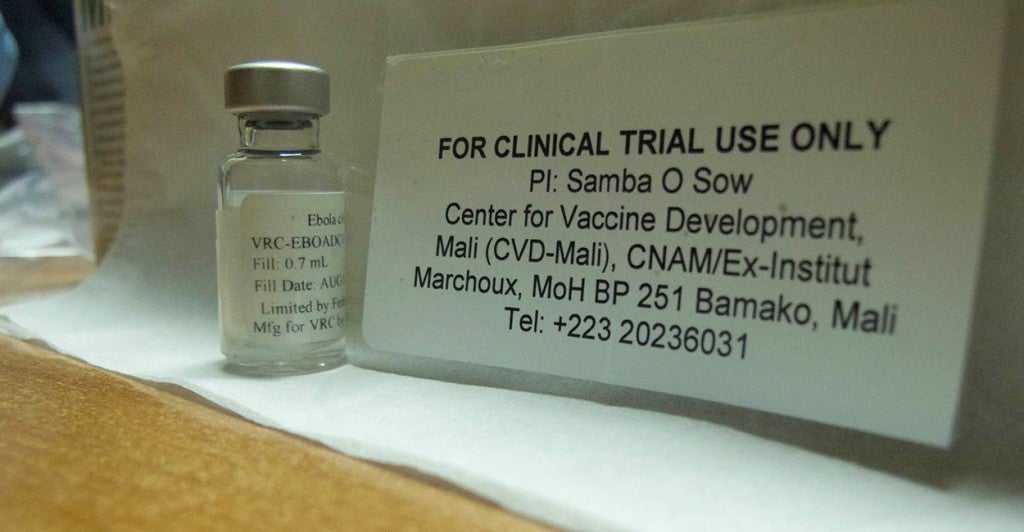Francis Collins, chief of the National Institute of Health, recently blamed the lack of any cure for, or vaccine against, Ebola on budget cuts, stating,
“Frankly, if we had not gone through our 10-year slide in research support, we probably would have had a vaccine in time for this that would’ve gone through clinical trials and would have been ready,” Collins said in a statement to The Huffington Post.
Well, there is more to the story. As the Washington Post explained, “[g]enerally, Congress gave the NIH about what the president requested — sometimes more, sometimes less. In 2013, for instance, Congress gave the NIH more than what the White House had requested, but then $1.5 billion was taken away by sequestration.”
With reference to the NIH program on infectious diseases, the Washington Post noted that funding went from $1.8 billion in 2000 to $4.3 billion in 2004. According to government budget documents, from fiscal year 2009 to fiscal year 2015, NIH received between $29.1 billion and $40.5 billion in discretionary spending appropriations.
The bottom line is that funding has been relatively flat since 2004, having grown rapidly during the early 2000s and having fallen slightly over the last four years. But what Collins didn’t say was this: fighting infectious diseases like Ebola was his lowest priority.
How is that? Well, unless Congress tied Collins’ hands by statute about how he could spend his appropriated funds and then refused to let him reallocate money when he asked for that authority, Collins had the power to use his appropriations to find a cure for or vaccine against Ebola. He could have done so by reallocating funds from a different project to that one.
Instead, he decided to use his money for other purposes, and he had too little left over to fight Ebola. That is what he meant when he said that he had too little money. He paid for everything according to his order of priority, everything else came ahead of Ebola and he didn’t have enough money left to fight that disease after paying his other bills. So if you read between the lines of what Collins said, he treated the risk of an Ebola epidemic as being so small that he put it last in his list of priorities.
Mind you, Collins has a tough job. Whoever is responsible for deciding which diseases to fight certainly has difficult decisions to make. Different diseases cause different harms. Some are fatal; others not. Some take forever to eliminate; others, even longer.
In the meantime, it is unavoidable that people will die because some diseases receive less funding than others. That is sad, but unavoidable. Those are the arguments to make when someone like Collins is asked why there is no current treatment for Ebola—not the complaint that, “If we only had more money we wouldn’t be in this pickle, so don’t blame me, blame Congress.” That is just buck-passing.
How to allocate discretionary funds is a matter of choice. Collins said that with more funding “we probably would have had a vaccine in time.” Collins did not reallocate funds to that task, and he should explain why he didn’t use other funds available to him for that purpose.
Perhaps his decision was reasonable because he thought that the risk of an epidemic was slight and that the protocols in place to respond to a case of Ebola on our soil were adequate to the task. A decision that was reasonable when it was made does not become unreasonable just because events did not turn out as anticipated. But if Collins had the authority to shift funds from other uses to fighting Ebola, blaming Congress for not giving him unlimited funds is not a reasonable response.
If federal law prohibited such a reallocation, let’s identify the law and fix it. If Collins chose not to reallocate funds, let’s hear his explanation for that decision. If one of Collins’ supervisors prohibited him from reallocating funds, let’s identify the supervisor ultimately responsible and ask why that decision was made.
Unfortunately, if no one is willing to explain why we did not allocate more funds to Ebola, we may not learn how we can fix this problem and prevent its reoccurrence. We don’t need someone to fall on his sword to protect the responsible party. We need to identify that person and ask him or her why more funds were not used to fight this disease.
